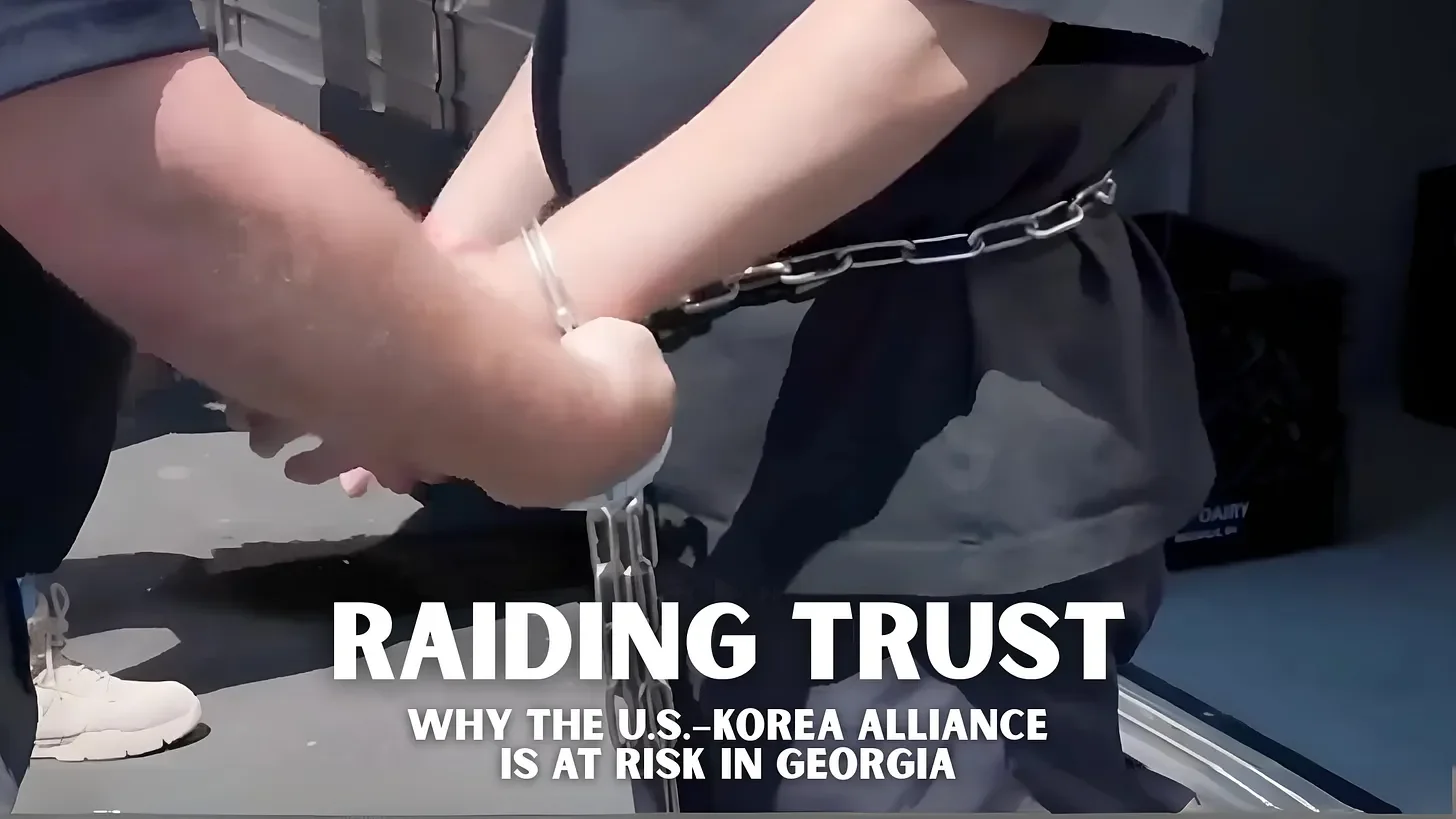Raiding Trust: Why the U.S.–Korea Alliance Is at Risk in Georgia
A major federal raid in Georgia exposed deep flaws in U.S. immigration and labor policy. We need urgent visa reform to protect global partnerships and Georgia’s economic future.
On September 4, U.S. immigration authorities carried out a large-scale raid at the Hyundai–LG Energy Solution joint battery plant construction site in Bryan County, Georgia. More than 450 people were detained, including over 300 South Koreans, with multiple federal agencies—ATF, ICE, FBI, DEA, HSI, and IRS - and Georgia State Patrol involved. This was not a routine action against undocumented workers but an unprecedented move targeting global companies.
Among those detained were skilled workers and subcontractors dispatched by Korean companies to ensure the plant’s timely completion. Many had entered on B1 visas or short-term ESTA permits but ended up performing construction work—technically a violation of labor restrictions. However, the real issue is structural: while the U.S. government has courted foreign investment and new factories, it has failed to issue skilled worker visas (E, L, and H) in a timely manner.
America’s manufacturing sector already suffers from a chronic labor shortage. In specialized industries such as semiconductors and batteries, completing projects on schedule is nearly impossible with American skilled workers alone. As industry leaders often say, “Thirty skilled workers are more valuable than one hundred unskilled workers.” Yet the Trump administration has sent mixed messages: welcoming Korean investment while simultaneously blocking the legal deployment of skilled labor—creating a dangerous contradiction.
This incident is more than a labor enforcement issue; it strikes at the foundation of trust in the U.S. - Korea manufacturing alliance. Georgia has become a hub for Korean industry, with more than 110 companies—including SK, Hyundai, Kia, Hanwha Qcells, and LG—creating over 17,000 jobs. If large-scale raids like this continue, they will not only undermine investment confidence of Korean companies but also damage the trustful economic relationship between the U.S. and Korea.
As a Korean American candidate for the Georgia House of Representatives, District 99, I strongly urge the U.S. government to prioritize the rapid issuance of E, L, and H visas for skilled workers rather than resorting to headline-grabbing raids. This is the responsible path forward—protecting both companies and workers while safeguarding the trust that underpins U.S. - Korea economic cooperation.
At the same time, I call on Korean companies to live up to their responsibility as trusted global corporations. They must adapt to U.S. business practices and regulations, ensuring strict compliance with worker protections, fair wages, benefits, compensation standards and environmental protection.
The U.S. seeks to grow as a global hub for manufacturing, and the Trump administration has pressured foreign countries to invest through unprecedented tariffs and trade policies. But for long-term success, our relationship must be built on mutual respect, accountability, and shared prosperity.
As your next state representative, I will serve as a watchdog for transparency, accountability, and fairness in how global business is conducted in Georgia—ensuring that both American workers and international partners thrive together.
— Michelle Kang, Democratic Candidate for Georgia House District 99

